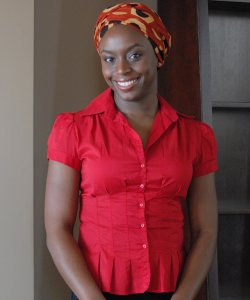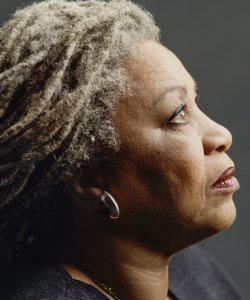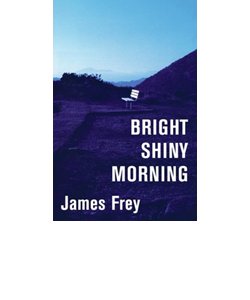A Slender Hope: A Profile of Chimamanda Ngozi Adichie

For Nigerian author Chimamanda Ngozi Adichie, literary stardom has yielded more than the confidence to keep writing. Much more.
Jump to navigation Skip to content

For Nigerian author Chimamanda Ngozi Adichie, literary stardom has yielded more than the confidence to keep writing. Much more.
National Poetry Month is almost over. We laughed; we cried; we read and, perhaps, wrote some good poems. But now that the month-long verse extravaganza is nearly at an end—although it never really ends for the poets out there, does it—attention turns to the other genres as well. So, perhaps it's time to point out that fiction writers have a number of opportunities during May to enter contests in which prizes are given for short stories.
For the procrastinators out there, tomorrow is the deadline for three contests, all of which offer a thousand dollars and publication. The Journal's Short Story Contest is given for a single short story, Lee K. Abbott will judge; Leapfrog Press's Fiction Award is given for an entire manuscript of stories (or a novel or novella) and will be judged by three Michaels (Michael Graziano, Michael Lee, and Michael Mirolla), and the Southwest Review's David Nathan Meyerson Prize for Fiction is given for a single story and is open only to writers who have yet to publish a book.
For those who want to plan a bit further ahead, the deadline for Hunger Mountain's Howard Frank Mosher Short Fiction Prize is May 10. The author of the winning story receives a thousand dollars and publication.
May 15 is the deadline for the Lorian Hemingway Short Story Competition, the well-defined prize given annually for a story writer whose fiction hasn't appeared in a nationally distributed publication with a circulation of five thousand or more.
And even though it falls on a Sunday, May 31 is the deadline for three short story-related contests: the University of Georgia Press's Flannery O'Connor Awards, Glimmer Train Press's Short Story Award for New Writers, and The Writer's Short Story Contest.
The finalists for the New York Public Library Young Lions Fiction Award, given to a writer thirty-five or younger, were announced this week, and—not to toot our own horn or anything, but—two of the five, Rivka Galchen and Salvatore Scibona, were included in our July/August 2008 feature on debut fiction writers.
Galchen was nominated for her novel Atmospheric Disturbances (HarperCollins, 2008), which was also mentioned in Sarah Weinman's article, "Book Trailers: The Key to Successful Marketing" (November/December, 2008), for its especially inventive trailer.
Salvatore Scibona was nominated for his novel,The End, published by Graywolf Press, the St. Paul-based indie, whose authors have been raking in the acclaim lately. Along with Scibona's, Graywolf publishes the work of inaugural poet Elizabeth Alexander and recently released a special chapbook of Alexander's poem "Praise Song for the Day." Matthea Harvey recently won the $100,000 Kingsley Tufts Poetry Award, given for a book by a midcareer poet, for her collection Modern Life, which Graywolf published in 2007. (Harvey, by the way, was featured in "Why We Write Now," our special feature on inspiration included in our January/February 2009 issue.)
The three other finalists are Jon Fasman for The Unpossessed City (Penguin, 2008), Sana Krasikov for One More Year (Spiegel & Grau, 2008), and Zachary Mason for The Lost Books of the Odyssey (Starcherone, 2008).
The winner, who receives $10,000, who be announced on March 16.
A recent study found that literature can be a useful tool in shaping the public's understanding of political and economic issues, perhaps having more of an impact than academic writing on the subjects.

A writer doesn't work for four decades, publish ten books, and win the Nobel Prize without developing a healthy dose of skepticism. This attitude, combined with the confidence to disregard critics, has made Toni Morrison stronger than ever.
Booksellers and readers alike tend to think of novels as belonging to one of two distinct categories—literary or genre fiction, high or low culture, elitist or democratic—but more and more of America's respected literary novelists are choosing to dip from the genre pot.
For Ethan Canin, writing has never been easy—or, for that matter, pleasurable. Despite the sprawling achievement of America America, his newest novel might just be his last.

James Frey has had quite a week. His novel, Bright Shiny Day, published last Tuesday by HarperCollins, has sold 14,343 copies, according Nielson BookScan, which tracks about 70 percent of a book's total sales.
The Man Booker Prize, the prestigious annual award given for a novel by a writer from the British Commonwealth or Ireland, will celebrate its fortieth anniversary by honoring one of its previous winners with the Best of the Booker Prize, judged ultimately by the reading public. Anyone may cast a vote for one of the six Best of the Booker finalists, selected from forty-one winning novels dating back to 1969 by judges Victoria Glendinning, Mariella Frostrup, and John Mullan.